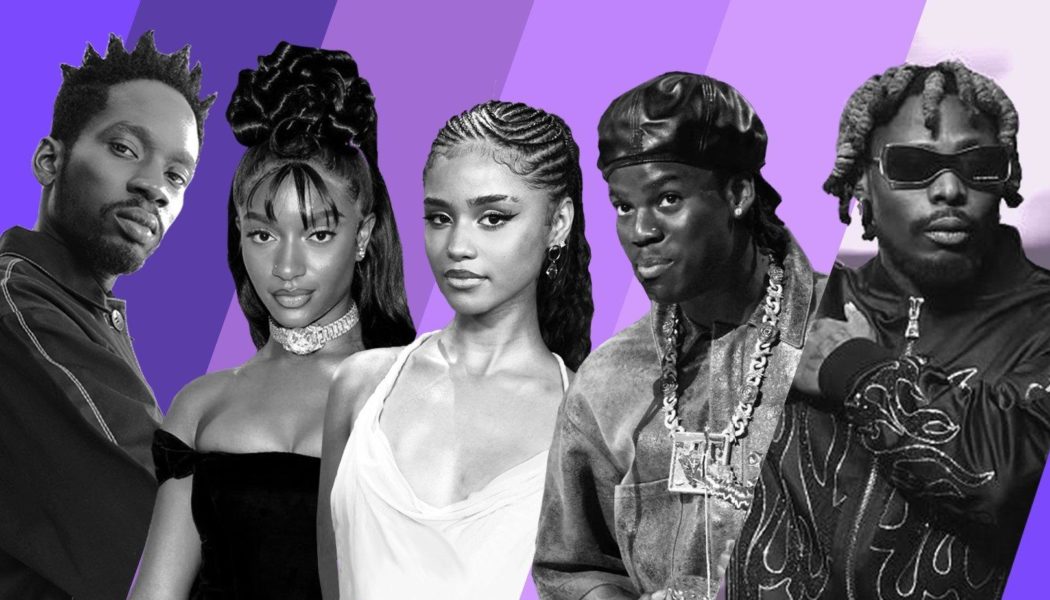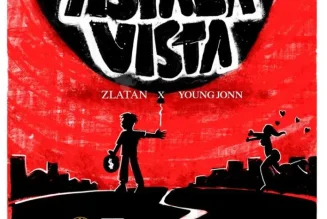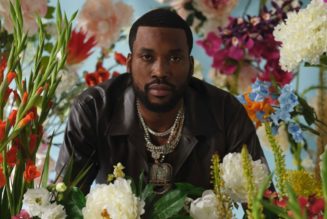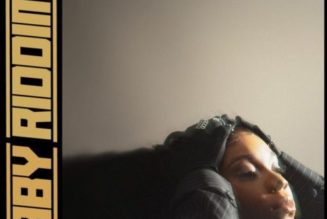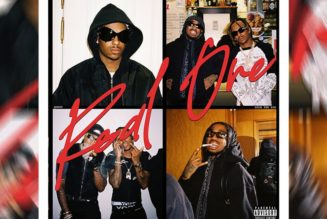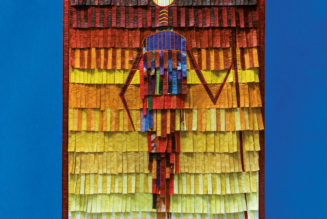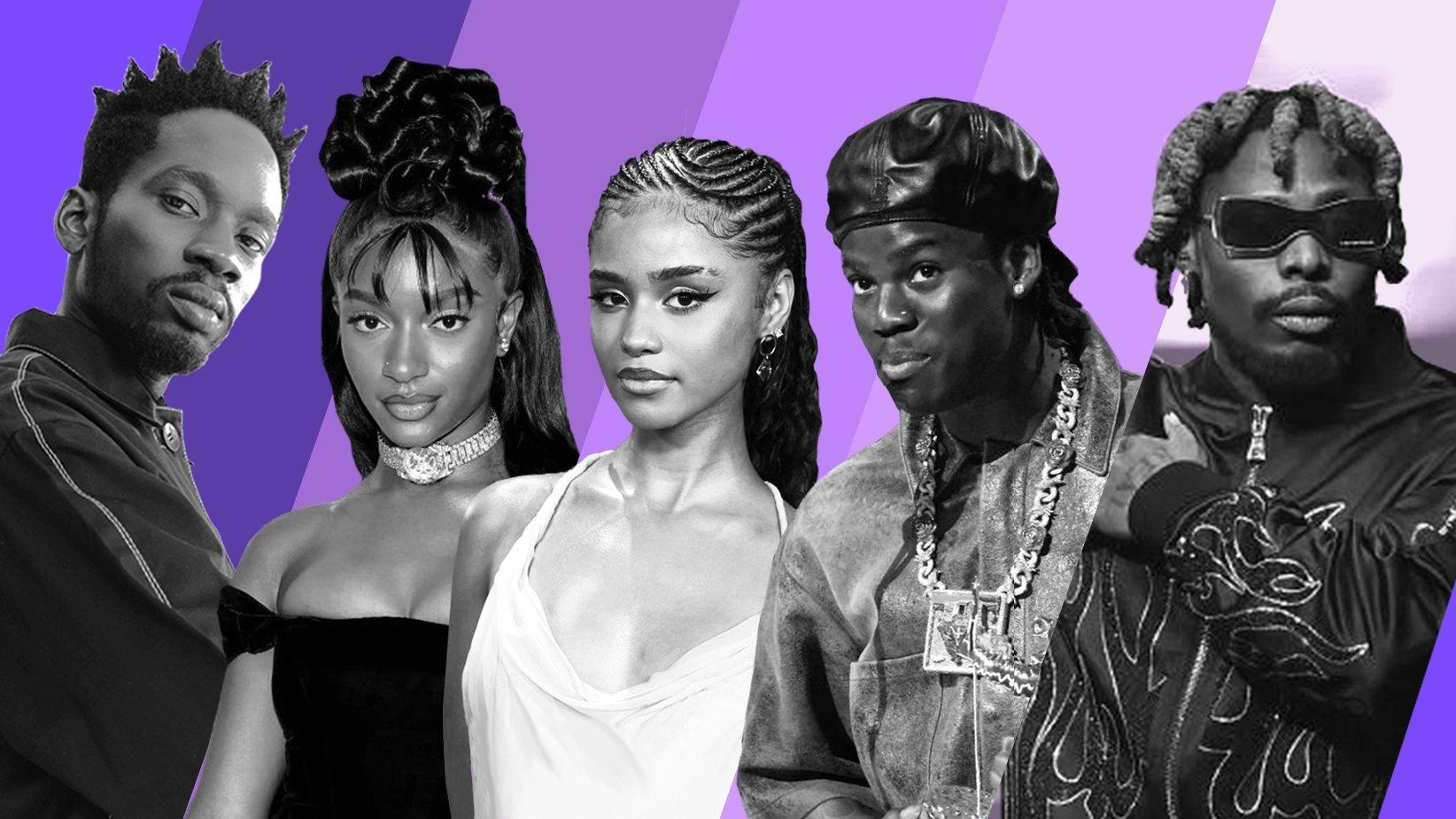
It could be argued that 2023 was African music’ biggest year ever. The stars shined brighter, the hits went further, and the global music industry is taking notice.
To wit, the Recording Academy announced the 2024 GRAMMY nominees for its inaugural Best African Music Performance award. Some of the continent’s biggest talents are getting the spotlight: Rising artists like Ayra Starr, ASAKE, and Tyla will compete against global megastars Burna Boy and Davido in a history-making category.
But there was much more going on than hits and highlights. Afrobeats embraced continent-spanning sounds, from traditional genres to South African club music. Female artists from the continent shined as brightly as their male counterparts. Across the board, bold, experimental new sounds began to creep into the landscape. As an exciting year in Afrobeats and African music comes to a close, take a look at some of the trends that defined this broad soundscape in 2023.
Afrobeats Stars Are Crossing Over in America
Even if the GRAMMY’s hadn’t decided to shine a light on Africa’s music industry with the Best African Performance category, Afrobeats artists made major inroads into the American music market in 2023. ASAKE appeared on “Good Morning America” and “The Tonight Show” to promote his album Work of Art, and recently released a collab with H.E.R. And Burna Boy — one of the genre’s biggest forces — sold out Citi Field in New York and played to a massive Coachella crowd.
Afrobeats artists played festivals across the country, none more significant than the first-ever stateside editions of AfroNation. Burna Boy headlined both legs of the genre-specific festival alongside WizKid in Miami and Davido in Detroit, while each one featured an undercard full of incredible artists. Rema, ASAKE, Ckay, and BNXN performed in Miami, while Detroit featured Kizz Daniel, P-Square, Stonebwoy, and others.
But in terms of chart success, one song dominated above all. Driven by a remix featuring Selena Gomez, Rema’s “Calm Down” smashed Billboard records. The song became the longest-running No. 1 in the history of the U.S. Afrobeats chart, spending more than a full year at the top. It eventually crossed over to the Hot 100, also spending a on the chart and becoming the longest-charting African song in its history, although it fell short of the top, peaking at No. 3.
There’s more where that came from. Rema’s success with “Calm Down” shows the potential Afrobeats artists have to connect with audiences across the world, including North America. Some are already looking for ways to integrate American music into their own songs.
Amapiano Is Everywhere
South Africa’s long history of flirting with house music — from kwaito in the post-Apartheid ‘90s, to the Afro-house of Black Coffee and Da Capo — is finally taking the country’s music global thanks to amapiano. The dance genre typified by sweltering grooves, sizzling shaker rhythms, and the bombastic log drum, was all over Afrobeats this year.
Heartthrob Ckay tapped the sound on “Hallelujah” with Blaqbonez. Davido collaborated with Musa Keys on his GRAMMY-nominated track “Unavailable” [fellow nominees in the Best African Music Performance category are “Amapiano” by ASAKE & Olamide, Burna Boy’s “City Boys,” “Rush” by Ayra Starr, and Tyla’s “Water.”] And Mr. Eazi recruited Focalistic, Major League DJz, and others for the debut record of his ChopLife Soundsystem side project. Artists as far away as China are also putting their own spin on the sound, such as Vinida Weng with “WAIYA.”
But no one in Afrobeats has embraced amapiano quite as much as ASAKE. His inventive take on the genre incorporates Indigenous sounds from Nigeria to create a totally new and personal style. Songs like “Basquiat” and “Amapiano” reverberate with amapiano log drums and cymbal samples as well as choral background vocals.
America has caught amapiano fever as well. South African starlet Tyla’s R&B-inflected “Water” became a crossover hit, unseating Rema from No. 1 on the Billboard Afrobeats chart and reaching (as of this writing) a record-setting No. 1 10 on the Hot 100 — the highest-ever for a South African artist. Both U.S. legs of AfroNation also featured a Piano Power stage, with sets by Maphorisa, Musa Keys, Major League DJz, DBN Gogo, Focalistic, TXC, and Uncle Waffles, who also performed at Coachella.
Female Artists Are On The Rise
Although Afrobeats has largely been dominated by male artists — especially the big three of Burna Boy, WizKid, and Davido — the genre’s female stars are also proving their might. Tems gained fame thanks to features on songs like WizKid’s “Essence,” but stepped further into the spotlight following the release of 2022’s For Broken Ears. Her latest song, “Me & U,” is a soul-searching track that doubles as a love song and a paean to the almighty.
Tems’ continues to receive industry recognition as well. At the 2023 GRAMMYs, she took home a golden gramophone for Best Melodic Rap Performance “Wait for U,” a collab with Future and Drake. Her work co-writing Rihanna’s “Lift Me Up” from the Black Panther: Wakanda Forever soundtrack earned an Oscar nomination, and the song is nominated for Best Song Written For Visual Media at the 2024 GRAMMYs, alongside Barbie The Album‘s “Dance The Night,” “I’m Just Ken,” “What Was I Made For?” and “Barbie World.
Ayra Starr, meanwhile, is universally seen as Afrobeats’ next big thing. The Benin-born starlet’s triumphant song “Rush” notched a GRAMMY nod, and she’s continued her dominant streak with singles such as “Sability” and “Stamina” with Tiwa Savage and Young Jonn. She’s also featured on tracks by WizKid, Ninho, David Guetta, and Tyla.
And speaking of the South African, Tyla’s success with “Water” also highlights the power of female Amapiano artists, none are as mighty as Uncle Waffles. The eSwatini native gained a huge hit with “Tanzania,” and played it out to feverish crowds at Coachella and AfroNation Miami.
Ghana’s Scene Is Buzzing
Two countries away from Nigeria, Ghana’s music scene is bursting with creativity. For proof, look no further than Atlanta-raised AMAARAE’s Fountain Baby, one of the most buzzed-about pop releases on either side of the Atlantic. The record fuses Accra-attitude with 2000s R&B futurism for a bold, dangerously sexy sound that’s totally unique.
Black Sherif, meanwhile, reps the streets. As a major representative of asakaa, the country’s take on drill music, the rapper has taken the gritty sound of Ghana’s ghettos to new places this year, touring his 2022 record The Villain I Never Was and its hit single “Kwaku the Traveler” at the MOBO Awards in London, Wireless Festival in Abu Dhabi, and events across the U.S. His latest track “OH NO” goes into ambitious new territory with influences added from highlife and soul.
Finally, Mr. Eazi may be Nigerian by birth, but Ghana is where he made his name and developed his signature “banku” sound, mixing Afrobeats with highlife and other local influences. After 10 years in the business, he finally released his debut album The Evil Genius with a uniquely artful twist: Every track is accompanied by a painting executed by an African artist. Eazi has called the album his most personal work yet.
Afrobeats Artists Are Defying Genres
Burna Boy took on hip-hop and pretty much everyone else hopped onto amapiano, but in 2023 artists in Afrobeats and beyond took turns trying to expand the genre. Fresh off the success of “Calm Down,” Rema delivered a scorching new EP. Ravage flung the singer into dangerous new territory, with dramatic lyrics and dark, hyperpop-leaning production on tracks like “Don’t Leave.”
Up-and-coming artists are also trying to break away from the pack with experimental new sounds. Blaqbonez, featured on Ckay’s “Hallelujah,” spits over bouncy Igbo drumming on “NYEM EGO.” Brazy, meanwhile, blended Afrobeats with Jersey Club on “omg.”
Last but not least, one of the most interesting Afrobeats-adjacent songs of the year was made in London. Nigerian-British Jim Legxacy’s “dj” boldly fuses hyperactive Afrobeats drums with Midwest emo guitars and a warbling, R&B-esque vocal performance. “You used to promise me you’d teach me how to DJ” may be one of the most instantly devastating opening lines of the year.
